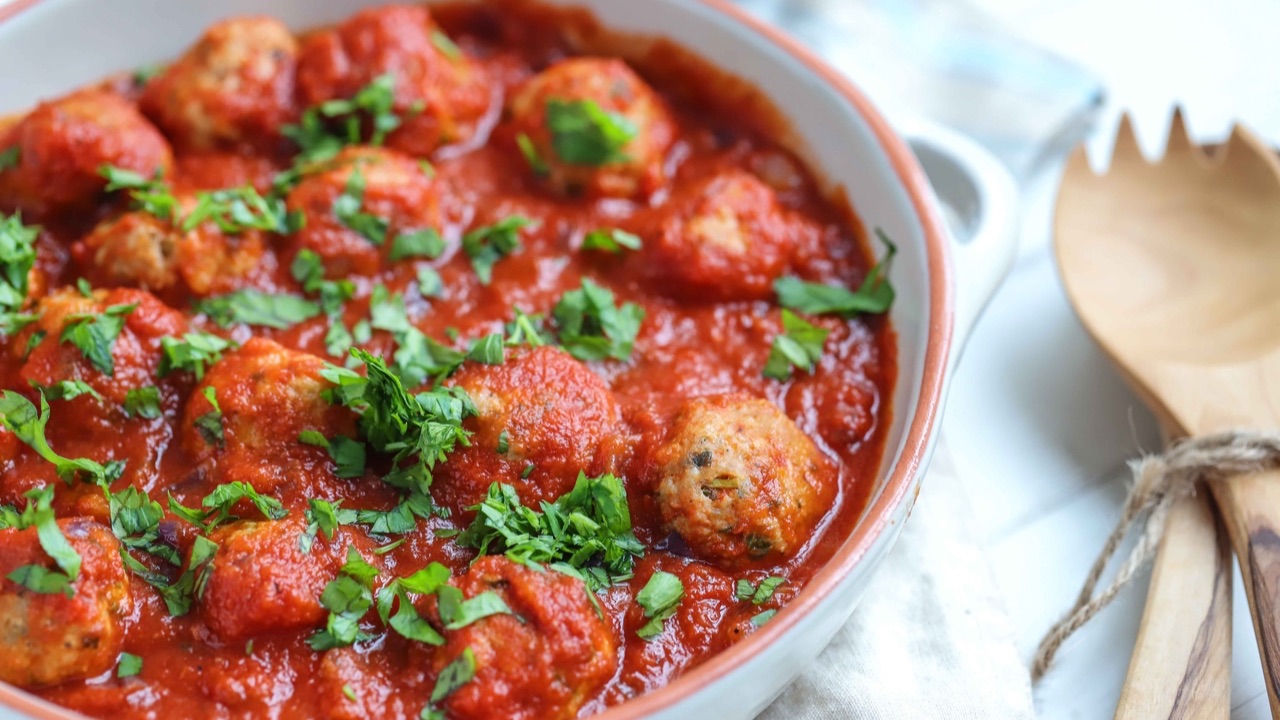Pork Meatballs In Tomato Sauce

Pork Meatballs in Tomato Sauce is a delicious and easy-to-make recipe that combines lean pork mince, garlic, onion, passata, parsley, olive oil, salt, and pepper. Not only does this dish pack a flavorful punch, but it also offers numerous health and brain benefits that make it a smart choice for your next meal.
The ingredients used in this recipe come together to create a meal that is not only scrumptious but also provides essential nutrients to support your overall health and cognitive function.
Lean pork mince
Pork is an excellent source of high-quality protein, vitamins, and minerals, including thiamine, niacin, vitamin B6, and vitamin B12, which are all essential for brain function and neurotransmitter synthesis [1]. Additionally, lean cuts of pork are low in fat and cholesterol, making them a heart-healthy choice [2].
Garlic
This aromatic ingredient is known for its numerous health benefits, including its potential to boost the immune system, lower blood pressure, and improve brain function [3]. Garlic contains antioxidants that protect against cell damage and aging, potentially reducing the risk of Alzheimer's disease and dementia [4].
Yellow onion
Onions are packed with vitamins, minerals, and antioxidants that have been linked to various health benefits, including improved heart health and reduced inflammation [5]. They also contain a flavonoid called quercetin, which may protect against neurodegenerative diseases like Alzheimer's [6].
Passata
Made from pureed and strained tomatoes, passata is a great source of the antioxidant lycopene, which has been linked to a reduced risk of heart disease and certain types of cancer [7]. Furthermore, lycopene may improve cognitive function and protect against age-related cognitive decline [8].
Parsley
This herb is rich in antioxidants, vitamins, and minerals that support overall health [9]. Additionally, it contains a compound called apigenin, which has been shown to promote neuron formation and improve memory [10].
Olive oil
As a staple of the Mediterranean diet, olive oil is rich in monounsaturated fats and antioxidants, which have been shown to provide numerous health benefits, including reduced risk of heart disease, stroke, and Alzheimer's disease [11].
Ingredients
- 14 oz. (400g) lean pork mince
- 1 clove garlic, minced
- 1 yellow onion, chopped
- 2 cups (480ml) passata
- ¼ cup (15g) parsley leaf, chopped
- 2 tbsp. olive oil
- salt & pepper
Instructions
- Place the pork in a medium bowl, season with salt and pepper. Add in the garlic and use your hands to mix thoroughly. Using 1 tablespoon of mince, form meatballs, roughly the size of a walnut.
- Heat 1 tablespoon of olive oil in a large pan and cook the meatballs, turning occasionally, for 10 minutes or until browned and cooked through. Then take off the heat and set aside.
- In the same pan, heat the remaining oil and cook the onion for 3-4 minutes until soft. Place the meatballs back into the pan and add the passata. Season with salt and pepper, bring to a boil and then reduce the heat. Simmer for 10 minutes and serve garnished with the parsley.
Pork Meatballs in Tomato Sauce is a scrumptious dish that offers an array of health and brain benefits. By incorporating this flavorful recipe into your meal rotation, you can enjoy a delicious meal while also supporting your overall health and cognitive function.






